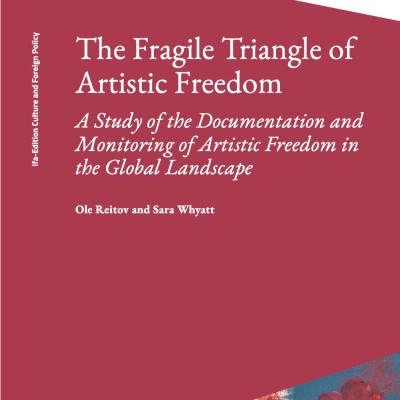
New study: The Fragile Triangle of Artistic Freedom
This new study published by ifa – Institut für Auslandsbeziehungen and written by Sara Whyatt and Ole Reitov tackles the global deficiency in knowledge, data, and awareness regarding the challenges to artistic freedom. It delves into the current state of systems that monitor and document violations of artistic freedom, identifies gaps in their promotion and protection, and outlines what is necessary to address these issues.
Here are some of the key findings:
- The international community has increasingly recognized the importance of artistic freedom in promoting and preserving democracy. This understanding has grown among human rights organisations, the culture and arts sector, and the public.
- More CSOs are now monitoring and promoting artistic freedom across the cultural, media rights, and human rights sectors. This has led to an increase in published reports that address national, regional, and global issues, as well as specific topics.
- More artists are becoming aware of their rights and actively participating in defending human rights. Research on artistic freedom is also increasing, with a rise in reports published by civil society organisations, academic papers, and arts and culture publications.
- The decline of democracy and human rights worldwide poses a significant threat to artistic freedom.
- There has been an increase in sophisticated methods of repression, causing many violations to go unnoticed. These covert methods include controlling film certification, requiring permission for public events, withdrawing funding, and banning art events on questionable grounds, particularly those featuring LGBTQIA+ or minority issues.
- Funders and donors provide essential support for artistic freedom projects. However, limitations and sustainability issues arise from the lack of long-term support, a preference for funding specific projects over core activities, the requirement to focus on certain topics, and overly complex bureaucracy.
